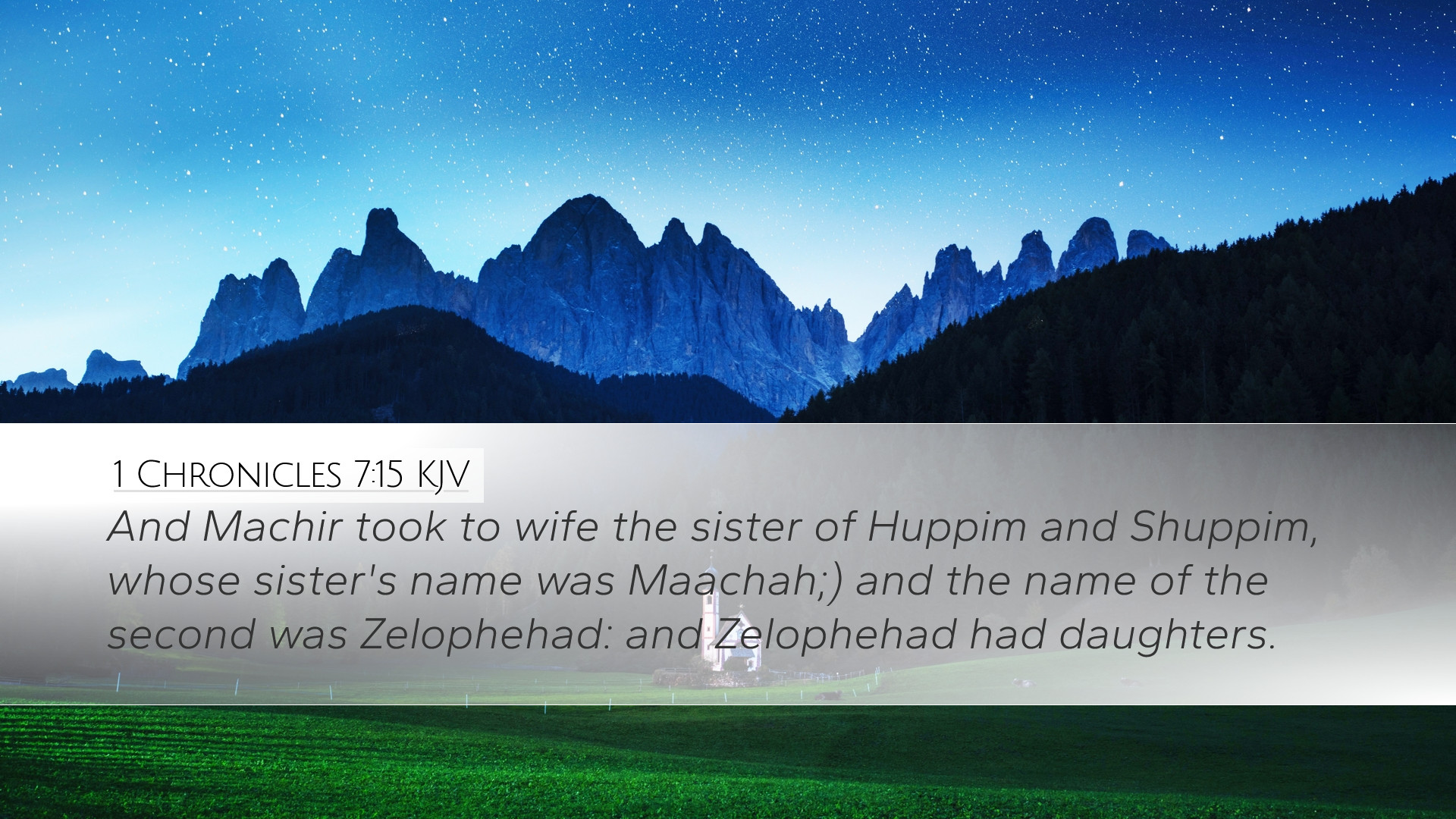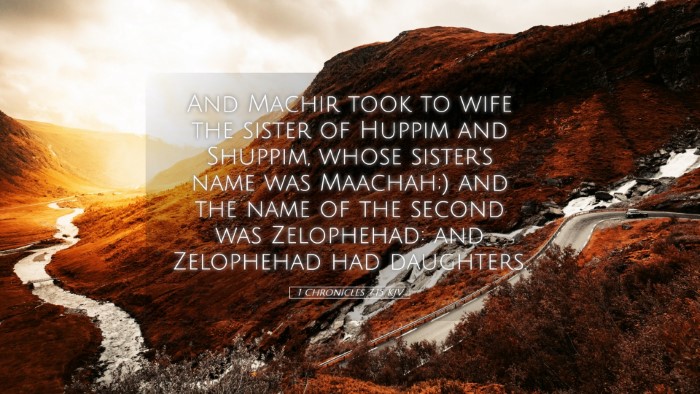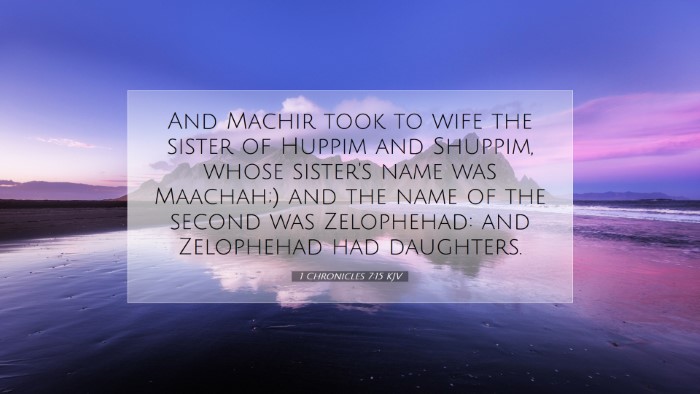Commentary on 1 Chronicles 7:15
Verse: "The sons of Makhir the son of Manasseh were Gileadites: and took Gilead and the towns thereof, and dwelt therein." (1 Chronicles 7:15)
Introduction
This passage from 1 Chronicles 7:15 presents a concise historical account of a segment of the Israelite population, specifically focusing on the descendants of Makhir, who are noted for their conquest and settlement in Gilead. The significance of this verse can be explored through various public domain commentaries, providing insights into its theological, historical, and practical implications.
Historical Context
The Chronicler, who is traditionally identified as Ezra, provides a genealogical record that highlights the importance of lineage and territory within the Israelite narrative. The reference to Makhir, a grandson of Manasseh (one of the sons of Joseph), emphasizes the tribal divisions and inheritance patterns established during the conquest of Canaan.
Makhir and Gilead
Matthew Henry expounds that Makhir's role as a significant figure symbolizes strength and leadership among his descendants. He notes that the Gileadites, as descendants of Makhir, played a crucial role in securing and developing the Gilead region, which was strategically important both agriculturally and militarily.
Territorial Conquests
Albert Barnes elaborates on the conquests of Gilead, explaining that these territories, characterized by their rugged mountainous landscapes, offer a rich tapestry of conflicts and alliances that shaped Israel's history. The ability of Makhir's family to take possession of these lands demonstrates the fulfillment of God's promises regarding the land promised to the descendants of Abraham.
Theological Themes
This verse encapsulates several theological themes that are vital for understanding the broader narrative of Scripture.
- Divine Promise: The settlement in Gilead represents the faithfulness of God to His covenant with Abraham, Isaac, and Jacob, affirming His ongoing commitment to their descendants.
- Leadership and Legacy: Makhir’s descendants exemplify the importance of strong leadership in the fulfillment of God’s will, preparing the way for future generations to thrive in the Promised Land.
- Identity and Inheritance: The emphasis on tribal lineage serves as a reminder of the identity and inheritance that comes with being a member of God's chosen people.
Practical Applications
The insights from the commentaries suggest several practical applications for contemporary readers, particularly for pastors and theologians who seek to apply biblical truths to their congregations and teachings.
Embracing Heritage
Adam Clarke underscores the importance of recognizing and valuing one’s spiritual heritage. He reflects on how understanding our own spiritual ancestry can deepen our faith and commitment to God’s work today.
Leadership in the Community
Pastors and church leaders can draw lessons from Makhir's leadership. It serves as a call to take bold actions in faith, advocating for the rightful inheritance of the community in a spiritual sense, and taking steps to secure their place in God’s greater plan.
Faithfulness in Conquests
As Makhir and his descendants took possession of Gilead, modern believers are encouraged to engage in the spiritual battles of today, claiming the promises of God and standing firm in faith against challenges that threaten their walk with Christ.
Conclusion
1 Chronicles 7:15, while simple in its wording, encapsulates deep historical and theological truths significant for understanding God’s covenant with Israel. By combining insights from Matthew Henry, Albert Barnes, and Adam Clarke, this commentary presents a multidimensional view of a verse that highlights the importance of heritage, leadership, and the fulfillment of divine promises. Such reflections invite ongoing exploration and application in personal and communal faith journeys.


